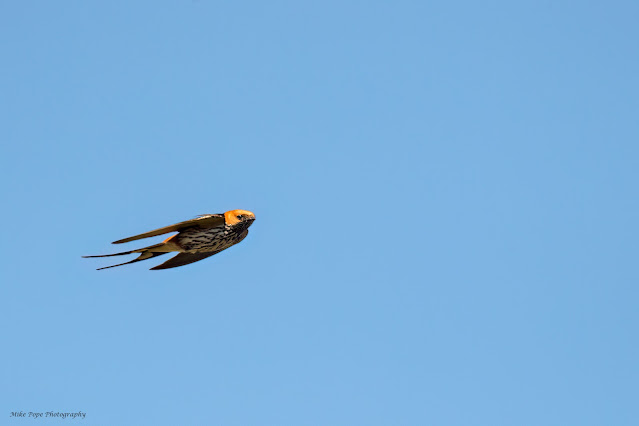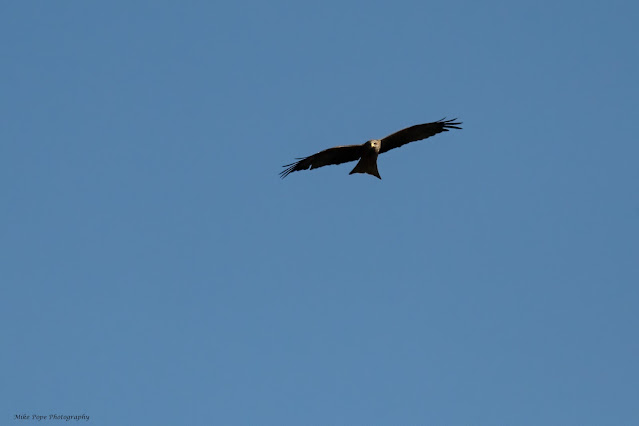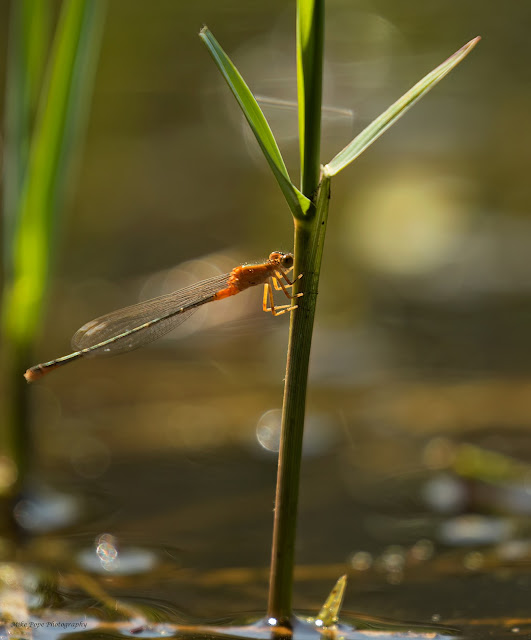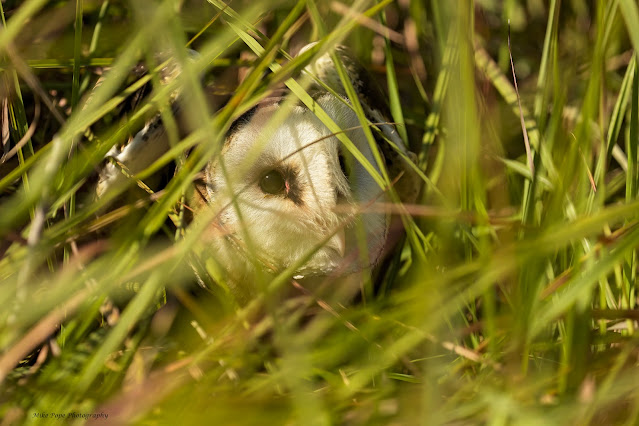01 March 2023 - GECKO Conservancy
Anton van Niekerk and I conducted a Grass Owl a morning survey at two sites in the GECKO Conservancy.
The first site which had burnt last winter didnt produce Marsh nor Grass Owl. Although the grass has recovered and the habitat looks healthy, it takes more than 1-year for the prey base to recover, so the Owls move on. We had to take care walking in the tall grass, as there were good numbers of Banded Orb Web Spiders in the grass
 |
| Banded Orb-weaving Spider (Argiope trifasciata) |
Marsh Acraea's were also prevalent
 |
| Marsh Acraea (Telchinia r. rahira) |
And an unidentified Moth sp
 |
| Moth sp. |
There were a couple of Lesser-striped Swallow's overhead - not that common in our area
 |
| Lesser-striped Swallow (Cecropis abyssinica) |
We noted a few Yellow-billed Kite's passing by overhead
 |
| Yellow-billed Kite (Milvus aegyptius) |
We then moved to the 2nd site where there was a really big flock of Pied Crow's overhead. We waited for them to move off, before starting the survey.
 |
| Pied Crow (Corvus albus) |
This time we had luck with both species - first up a pair of Marsh Owls
 |
| Marsh Owl (Asio capensis) |
Then a single Grass Owl that was defending a Vlei Rat it must have caught much earlier in the morning
 |
| African Grass Owl (Tyto capensis) |
Followed later by a 2nd Owl that was sitting on eggs which is great news. Later in the week, we would setup a camera trap to record the breeding progress and minimise further disturbance
 |
| African Grass Owl (Tyto capensis) |
We then spent some time at a small dam photographing a variety of Damselflies
 |
| Swamp Bluet (Africallagma glaucum) |
 |
| Tropical Bluetail (Ischnura Senegalensis) |
On the way back to our cars, we picked up a young Brown-backed Honeybird with it's host parents a pair of Black-chested Prinia's that were scurrying back and forth feeding the voracious youngster
 |
| Juvenile Brown-backed Honeybird (Prodotiscus regulus) |
 |
| Juvenile Brown-backed Honeybird (Prodotiscus regulus) and Black-chested Prinia (Prinia flavicans) |
 |
| Black-chested Prinia (Prinia flavicans) |










































No comments:
Post a Comment